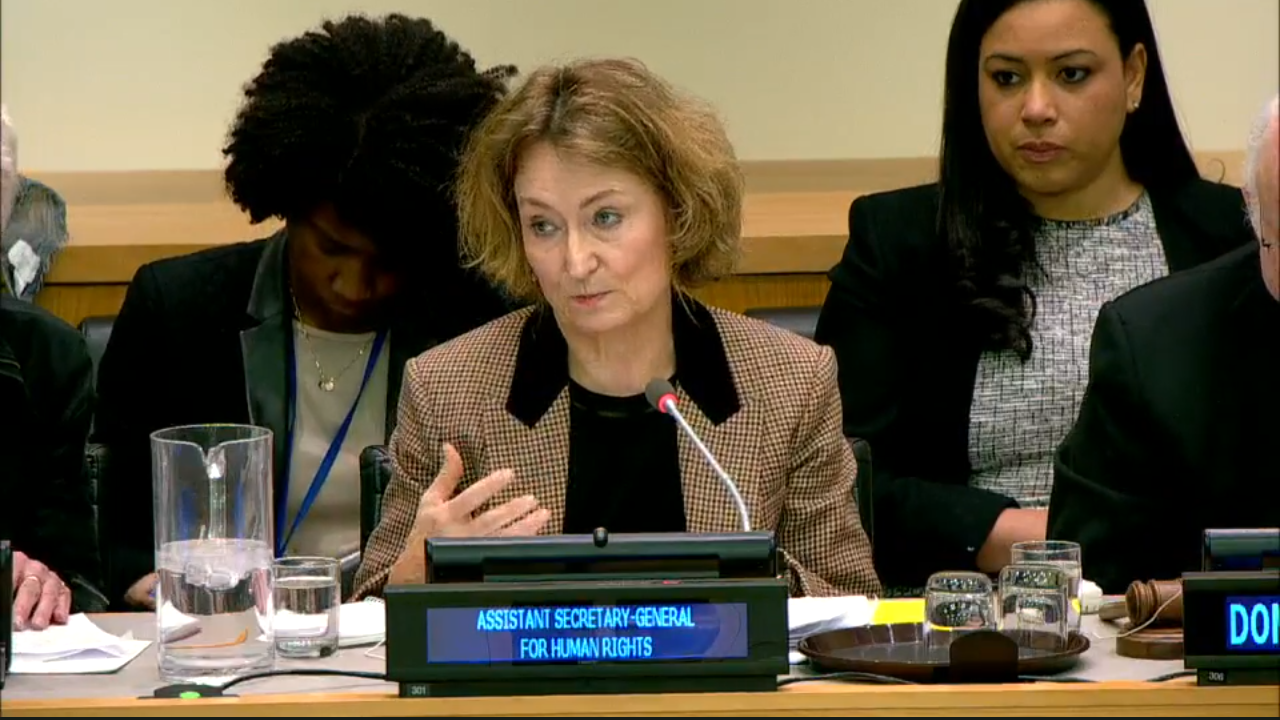September 30, 2020

On September 30, 2020, during the UN Human Rights Council (HRC)’s 45th session, the United Nations (UN) Assistant Secretary-General (ASG) for Human Rights, Ms. Ilze Brands Kehris, presented the 11th annual report on cases of intimidation and reprisals against individuals who have cooperated with the UN and its mechanisms
Global trends
In the 2020 report, the ASG mentioned more than 40 states where individuals have continued to face intimidation or threats for their work with the UN, indicating that individuals subjected to reprisals included “victims and witnesses, representatives of civil society and national human rights institutions, public officials and members of political parties, as well as their close relatives.” In her presentation of the report befort the Human Rights Council, the ASG stressed that, despite the global lockdown as a result of the Covid-19 pandemic, cases of reprisals have in fact increased. She further expressed concern over the “underreporting” of such cases, highlighting that in the latest report, as in others, “a number of cases or names have not been included […] owing to security risks for the individuals or organizations involved.”
Reprisals in the MENA region
The report covers acts of intimidation and reprisals that took place between June 2019 and April 2020, and includes updates on cases mentioned in previous reports. Of the more than 40 countries mentioned, 11 are in the Middle East and North Africa (MENA) region, namely Algeria, Bahrain, Egypt, Israel, Kuwait, Libya, Morocco, Palestine, Saudi Arabia, the United Arab Emirates, and Yemen.
In several countries – such as Bahrain, Libya, Saudi Arabia and Yemen – state authorities have resorted to harsh measures, such as arbitrary arrests, ill-treatment in detention and travel bans against civil society actors, journalists and human rights defenders cooperating with the UN mechanisms. In Egypt, Kuwait and Morocco, smear campaigns and threats targeted international lawyers, activists and relatives of disappeared persons. In Kuwait, international lawyers were vilified and threatened for simply engaging with the Working Group on Arbitrary Detention (WGAD) and the World Bank’s International Centre for the Settlement of Investment Disputes. In Egypt, relatives of the disappeared faced harassment and intimidation tactics for engaging with the Working Group on Enforced or Involuntary Disappearances (WGEID). Additionally, civil society activists were subjected to continuous threats and, in certain situation, physical assault, in both Egypt and Morocco.
The report also highlighted the intimidation and threats that many women and women’s organisations have faced in response to their engagements with UN Treaty Bodies. The ASG noted an increase in public allegations of reprisals against women between the years 2017 and 2019. In Palestine, women’s organisations were subjected to smear campaigns and threats for their engagement with the Committee on the Elimination of Discrimination against Women. In Algeria, furthermore, women who have engaged with the UN faced attacks against their privacy and personal dignity in targeted smear campaigns.
The ASG additionally shed light on the fear that exists amongst civil society actors in several countries in the MENA, such as Libya and Yemen. This climate of fear has caused victims, witnesses, and civil society actors to reconsider their cooperation with international and regional experts, in addition to other UN mechanisms.
Detained human rights defenders in the MENA
The ASG also expressed concern over the continued detention of several human rights defenders in the region, including Saudi activists Loujain Al Hathloul, Samar Badawi, and Issa Al Hamid, in addition to Abdullah Al Hamid who died in prison in 2020 as a result of the “systematic denial of adequate medical care by the prison authorities.”
She also denounced the countless threats faced by numerous human rights defenders in the MENA region with some states, such as Egypt and the UAE, resorting to national security arguments and counter-terrorism legislation to prosecute and punish individuals who engage with international human rights mechanisms. As emphasised by the ASG, “when individuals, groups and communities are afraid to be associated with the United Nations, its relevance and impact is seriously undermined.”






